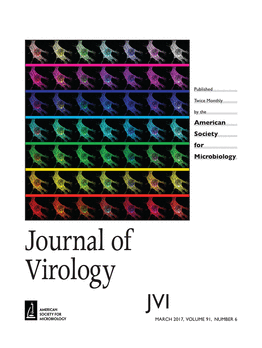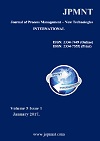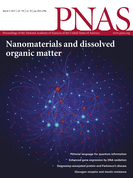 The week at Retraction Watch featured three new ways companies are trying to scam authors, and a look at why one journal is publishing a running tally of their retractions. Here’s what was happening elsewhere: Continue reading Weekend reads: A publisher sends the wrong message on data sharing; jail for scientific fraud; pigs fly
The week at Retraction Watch featured three new ways companies are trying to scam authors, and a look at why one journal is publishing a running tally of their retractions. Here’s what was happening elsewhere: Continue reading Weekend reads: A publisher sends the wrong message on data sharing; jail for scientific fraud; pigs fly
15-year old paper pulled for image problems
 A group of researchers in France has been forced to retract their 2002 article in the Journal of Virology after learning that the paper was marred by multiple image problems.
A group of researchers in France has been forced to retract their 2002 article in the Journal of Virology after learning that the paper was marred by multiple image problems.
The paper, “P0 of Beet Western Yellows Virus Is a Suppressor of Posttranscriptional Gene Silencing,” came from the lab of Veronique Ziegler-Graff, a plant biologist at the University Louis Pasteur, in Strasbourg. The authors attribute some of the image problems to “genuine mounting mistakes,” and have repeated the experiments to confirm the conclusion, as have other labs. However, the researchers couldn’t find all the original data from the 2002 paper.
Although the retraction statement points the finger at the first author, Sebastien Pfeffer, the list of contributors includes , a frequent collaborator of Olivier Voinnet, a high-profile plant biologist whose work has come under intense scrutiny.
According to the lengthy notice:
Continue reading 15-year old paper pulled for image problems
“Knowledgeable informant” outs researchers for falsifying data
 A pathology journal has retracted a 2015 paper from researchers in China after concluding the authors had falsified and copied some of the data and text.
A pathology journal has retracted a 2015 paper from researchers in China after concluding the authors had falsified and copied some of the data and text.
According to the notice, a “knowledgeable informant” told the journal about the overlap and “fraudulent” aspects of the paper, which the editors were able to confirm. The journal retracted the paper last month.
Here’s the retraction notice for “Genistein attenuates glucocorticoid-induced bone deleterious effects through regulation Eph/ephrin expression in aged mice:”
Continue reading “Knowledgeable informant” outs researchers for falsifying data
Journal flags another paper by diabetes researcher who sued to stop retractions
 It would seem that resorting to legal means to avoid editorial notices doesn’t always work.
It would seem that resorting to legal means to avoid editorial notices doesn’t always work.
We’re coming to that conclusion after seeing yet another notice for Mario Saad, based at the University of Campinas in São Paulo, Brazil. In this case, it’s an expression of concern from the Journal of Endocrinology, on a 2005 paper that lists Saad as the second-to-last author. According to the notice, the journal is concerned the paper contains spliced and duplicated images; although the authors offered to repeat the experiments, the journal considered that potential delay “unacceptable.”
Despite Saad’s legal efforts, he is now up to 11 retractions, along with multiple expressions of concern.
Here’s the full text of the notice (which is paywalled, tsk tsk):
Continue reading Journal flags another paper by diabetes researcher who sued to stop retractions
Should software companies choose not to work with predatory publishers?

With so many journals out there, it can be hard to know which ones are legitimate, and which ones have adopted so-called “predatory” practices – publishing anything as long as authors can pay. In this guest post, computer scientist Jacob Beal at BBN Technologies highlights one way he believes software companies may indirectly endorse questionable publishers by working with them– and why they should stop.
If you are a researcher, there’s a pretty good chance that you know Editorial Manager, the manuscript-handling system used by a vast number of journals, including Nature and the PLoS family of journals. In a publishing environment made increasingly murky by so-called “predatory” and other low-quality publishers, it used to be the case that seeing Editorial Manager was a clear signal that a journal was at least legitimate, whatever other pluses or minuses it might have.
Unfortunately, that appears to no longer be the case. Continue reading Should software companies choose not to work with predatory publishers?
Prominent physicist loses paper over data falsification
 A paper by a promising nanotechnologist has been retracted for data falsification.
A paper by a promising nanotechnologist has been retracted for data falsification.
Dmitri Lapotko, a Belarusian researcher with a background in laser weaponry, made a name for himself at Rice University in Houston, where he studied the use of nanotechnology to diagnose and treat human diseases. That work earned him significant press coverage, including stories in the New York Times and Science.
But that nanobubble may be bursting. The journal Theranostics has retracted a 2011 paper on which Lapotko is the last and corresponding author, citing questions over data falsification. What’s more, another journal has warned readers there may be a problem with a figure in a 2012 paper on which Lapotko is listed as last author.
Lapotko has since left Rice for Masimo Corp., a developer of monitoring devices for patients in the operating room.
According to the Theranostics notice:
Continue reading Prominent physicist loses paper over data falsification
Cancer researcher has dodged accusations for decades (and has a new correction)
Today isn’t a great day for Carlo Croce, chair of the department of cancer biology and genetics at The Ohio State University (OSU).
The New York Times has a lengthy article detailing the misconduct accusations that have swirled around Croce for years. We’ve covered many, but The Gray Lady obtained documents that show there have been many more.
The story mentions a 2013 letter from Ohio State University to pseudonymous whistleblower Clare Francis (which we reported on in 2014), acknowledging Francis’s allegations against Croce. However, in the letter, an administrator said OSU saw no reason to investigate Croce.
The story didn’t stop there, as the Times reports:
Continue reading Cancer researcher has dodged accusations for decades (and has a new correction)
Something new: A journal publishes running tally of retractions
 Here’s something we haven’t seen before: A journal based in Serbia recently began listing all the articles it has retracted, all due to plagiarism.
Here’s something we haven’t seen before: A journal based in Serbia recently began listing all the articles it has retracted, all due to plagiarism.
Although preventing plagiarism is hardly a new goal for journals, creating a web page dedicated to retractions is certainly a novel attempt. (Even the home page has a link to the page, called “Retracted Articles.”)
This past February, the Journal of Process Management – New Technologies International did exactly that. Currently, this page on the journal’s website features five papers, all retracted in 2016, along with links to notices which indicate the original, plagiarized article.
First, let’s list the notice for “Impact of shopper’s creativeness on shopping methods: A case-study of students of University of Delhi (India),” published in 2014:
Continue reading Something new: A journal publishes running tally of retractions
“Hindsight’s a bitch:” Colleagues dissect painful retraction
 Two blog posts are shining additional light on a recent retraction that included some unanswered questions — namely, the identity of the researcher who admitted to manipulating the results.
Two blog posts are shining additional light on a recent retraction that included some unanswered questions — namely, the identity of the researcher who admitted to manipulating the results.
To recap: Psychological Science recently announced it was retracting a paper about the relationship between the words you use and your mood after a graduate student tampered with the results. But the sole author — William Hart, an assistant professor at the University of Alabama — was not responsible.
The post raised some questions — for instance, who was the graduate student, and if his or her work was so influential to a paper, why was he/she not listed as an author? Hart declined to identify the student, but two new blogs — including one by one of Hart’s collaborators at the University of Alabama — are providing more details.
Continue reading “Hindsight’s a bitch:” Colleagues dissect painful retraction
Pay to play? Three new ways companies are subverting academic publishing
 Some recent communications from companies involved in academic publishing have some journal representatives worried. In one instance, a manuscript editing company offered to pay an editor to help its papers get published in his journal; in another, a research ethics company threatened to investigate all of an author’s papers if he or she didn’t donate thousands to support the company’s efforts. Bottom line: Research authors (and editors) should beware companies offering unethical manuscript editing and other publishing services. Below are examples (which we’ve verified) compiled by Chris Graf, Co-Vice Chair of the Committee on Publication Ethics (COPE) and Society Partnership Director at Wiley; Richard Holt, editor-in-chief of Diabetic Medicine and researcher at the University of Southampton; Tamara Welschot, the Director of Research Integrity and Publishing Services at Springer Nature; and Matt Hodgkinson, Head of Research Integrity, Hindawi Limited.
Some recent communications from companies involved in academic publishing have some journal representatives worried. In one instance, a manuscript editing company offered to pay an editor to help its papers get published in his journal; in another, a research ethics company threatened to investigate all of an author’s papers if he or she didn’t donate thousands to support the company’s efforts. Bottom line: Research authors (and editors) should beware companies offering unethical manuscript editing and other publishing services. Below are examples (which we’ve verified) compiled by Chris Graf, Co-Vice Chair of the Committee on Publication Ethics (COPE) and Society Partnership Director at Wiley; Richard Holt, editor-in-chief of Diabetic Medicine and researcher at the University of Southampton; Tamara Welschot, the Director of Research Integrity and Publishing Services at Springer Nature; and Matt Hodgkinson, Head of Research Integrity, Hindawi Limited.
We share for the benefit of researchers (and journal editors and publishers) three new warnings cut from the same cloth as other recent peer review “scams.” These warnings appear to indicate that third parties continue to attempt to inappropriately influence peer review and journal publishing.
Here are the details.
Continue reading Pay to play? Three new ways companies are subverting academic publishing
